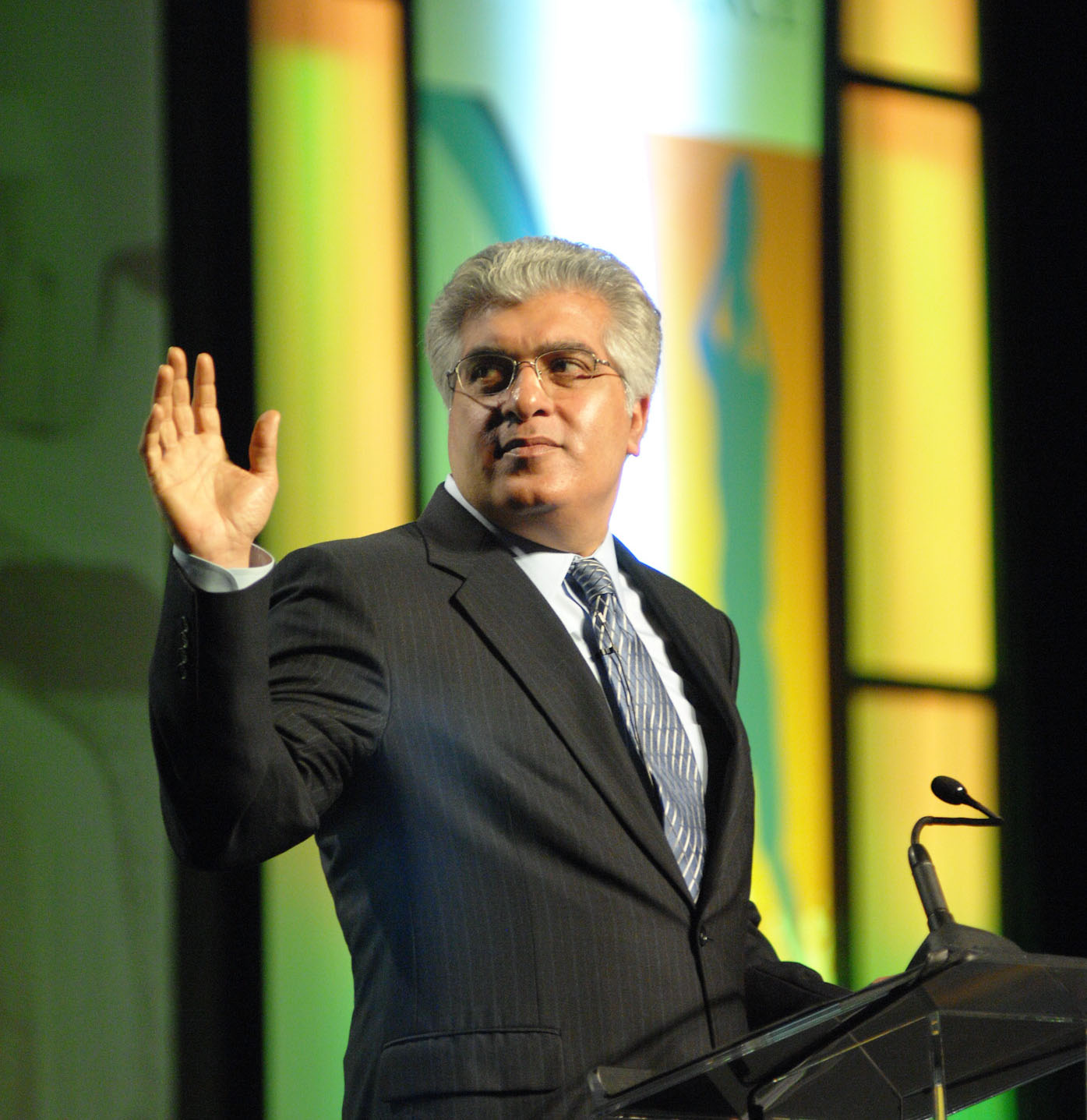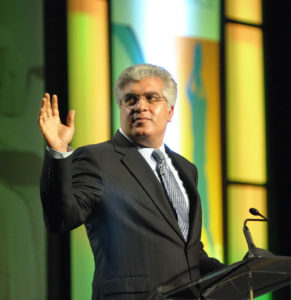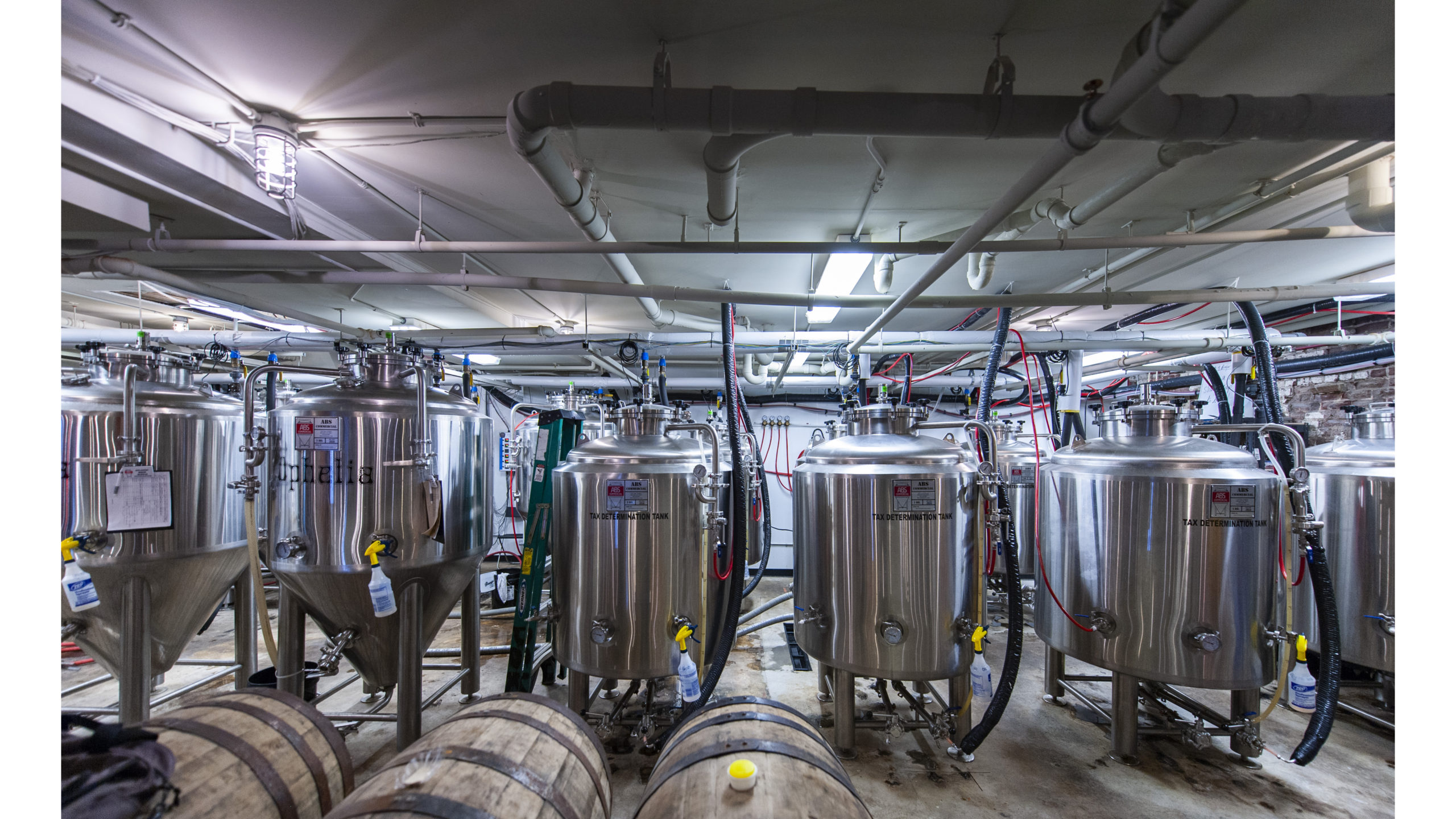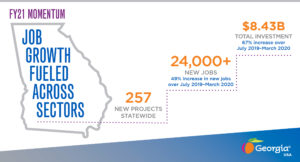
Medicare: Open Enrollment and You
Medicare riddle: What do Annual Open Enrollment and Halloween have in common? Each year they seem to start earlier and earlier. Halloween candy appears on store shelves in September along with health plan solicitations in mailboxes, on TV and radio.
When individuals “age into” Medicare, the plan selection process can be a daunting and challenging experience. When I initially meet prospective clients in their homes, I often see piles of solicitations strewn across tables where they have unsuccessfully tried to compare the multiple options available in their county. The window of opportunity for selecting coverage begins three months prior to one’s 65th birth month, although we recommend that you investigate options up to six months prior to your birth month.
Each year, Annual Open Enrollment mirrors the “aging in” period, and over eight weeks offers consumers time to learn about plan design changes that have been approved by the Center for Medicare and Medicaid (CMS). The period runs October 15 through December 7; carriers can present their 2022 plans on October 1, but they cannot process applications until October 15.
Open Enrollment provides multiple opportunities to consider these options:
- Switch from an Advantage plan to another.
- Individuals with Medigap plans
- can consider another prescription drug plan (Part D) or
- terminate an Advantage plan and return to original Medicare (not recommended) and select a stand-alone Part D.
- If a beneficiary is happy with their existing coverage no decision is necessary as coverage will automatically roll over to their carrier’s 2022 plan design.
With each passing year, the competition for new members becomes more aggressive, prompting plans with enhanced benefits that can include home health care, hearing aids, eye wear, and transportation, just to name a few. When considering plan benefits, it is essential not to overlook plan provider networks and drug formulary, or a list of generic and brand name prescription drugs covered by your health plan. Participation in each can change each year and confirming the status of your doctors and drugs in the 2022 plan is important.
To aid in understanding changes, CMS requires each carrier to provide the Annual Notice of Change (ANOC) document. This alerts clients of their benefit changes from year to year, i.e., copay, deductibles, etc. The ANOC is an important document to review; in my experience, clients can often overlook this document in their regular mail delivery.
Other than allowable Special Enrollment Periods (SEP), there are few exceptions to change coverage during a calendar year. It’s important to be aware of the available options to avoid costly errors. For example, when confirming drugs in the formulary, you may find one carrier categorizes a drug as a Tier 2, when the same drug is categorized a Tier 3 by another carrier. A carrier can also change the Tier designation of a drug from one year to the next. The difference may cost the patient significantly over the next year if not noticed when confirming plans.
My goal in writing this article is to provide insight to those looking at Medicare, as decisions can be complicated and once made, can’t be changed for the calendar year unless you qualify for an SEP designation. Take time to consider options; a licensed health agent, certified annually to represent plans with Medicare contracts, can be a vital part of a risk adverse strategy. The role of an agent is to represent their client with no monetary incentive to favor one carrier over another, as their compensation is the same for each plan and regulated by CMS.
 Since 2009, licensed health and life insurance agent (and Tucker resident) Bob Smith has represented major health insurance carriers for the ACA Marketplace, Medicare, Medicaid, Ancillary Plans and life insurance. For a free no-obligation quote and review of your health coverage programs call Bob at 404.593.9663 or email Bob@BobCareForYou.com. For additional insight, visit BobCaresForYou.com. From Obamacare to Bidencare to Bobcares℠ – Helping Families Protect Their Health, Wealth and Assets.
Since 2009, licensed health and life insurance agent (and Tucker resident) Bob Smith has represented major health insurance carriers for the ACA Marketplace, Medicare, Medicaid, Ancillary Plans and life insurance. For a free no-obligation quote and review of your health coverage programs call Bob at 404.593.9663 or email Bob@BobCareForYou.com. For additional insight, visit BobCaresForYou.com. From Obamacare to Bidencare to Bobcares℠ – Helping Families Protect Their Health, Wealth and Assets.

Forecaster Says Virus Variant Will Delay but Not Diminish Economic Growth Prospects
![]()
 Forecaster Says Virus Variant Will Delay but Not Diminish Economic Growth Prospects
Forecaster Says Virus Variant Will Delay but Not Diminish Economic Growth Prospects
ATLANTA-The impact of COVID-19’s delta variant will delay but not diminish growth prospects, and a current surge in inflation will recede in 2022, according to Rajeev Dhawan of the Economic Forecasting Center at Georgia State University’s J. Mack Robinson College of Business.
“The pause in growth is due to a decrease in consumption of contact-heavy service-sector products, such as hospitality, travel and elective healthcare because of the current surge in coronavirus illnesses and hospitalizations,” Dhawan said. “Once public health measures arrest the surge, consumer sentiment will improve, the service sector will reignite and growth will resume.”
The forecaster posited that three temporary factors are fueling inflation: the reopening of the hospitality and retail trade sectors, idiosyncratic supply chain disruptions and “super-sized stock market gains” leading to “spectacular home price growth.”
Dhawan said, “Hotel room rates have spiked, with a 10 percent increase in each quarter of 2021, as occupancy rose sharply after a long period of inactivity. And this was mostly leisure travel (meeting friends and family and taking summer vacations), which shows up in data as a rise in the consumer price index (CPI). But this is temporary. Another round of double-digit price increases would only happen if people began taking vacations not only in the summer, but also in the fall, and then again in winter – an absurdity, as it violates social calendar norms.”
Anomalous supply chain events (accidents at chip production plants in Taiwan) roiled U.S. car sales when chip shortages reduced new vehicle inventory and led to upward pressure on used-car prices.
“This was a one-time price increase that is already leveling off,” Dhawan said.
Dhawan acknowledged the seeming paradox of falling interest rates for 10-year treasury bonds given the high fiscal deficit and rising inflation.
“Why has the 10-year bond yield fallen for the last three months after peaking at 1.6 percent in March? And does this drop signal diminished growth prospects in 2022?” Dhawan asked. “Let me start by answering the second question. Growth prospects are undiminished but will be delayed.” – more –
Dhawan attributed the drop in 10-year yields to an influx of funds triggered by the arrival of delta variant cases of COVID-19 and an uptick in geopolitical worries.
“Companies pause capital expenditures (investments) during times of uncertainty and park their money in the safest assets in the world – U.S. treasury bonds,” he said.
The forecaster asserted the flight to safety would be temporary, pointing to the widely held perception of statements by Federal Reserve Chair Jerome Powell as credible.
Dhawan’s final inflation factor is the heated residential real estate market, spurred by “dramatic” stock market performance since the lows of March 2020, which has fueled “spectacular” home price gains over the last 12 months.
“The pandemic triggered a demand shock – a change in housing taste and location preference – that has not abated during subsequent waves of the virus,” he said. “People are moving from crowded in-town areas to single-family homes farther out or farther away.”
The hot market for residential real estate will ultimately normalize, Dhawan said.
“Once everyone has moved, the demand shock will abate. Affordability depends on price and interest rates. Although the Fed will not raise rates until well into 2023 (as tapering of bond purchases won’t begin until mid-2022),” he said. “Sustained high domestic fiscal deficits and eventual global recovery will push up long-bond yields, causing mortgage rates to reach 4.0 percent by late 2022.”
Dhawan said 2021 has averaged 617,000 new jobs per month from January to July, with almost 50 percent growth in the hospitality and retail trade sectors. The corporate sector, home to premium jobs, is not producing consistent job growth.
“Corporate job growth is at 52,000 new positions per month,” Dhawan said. “That’s only 8 percent of total job growth for a sector whose share of jobs is 14 percent. Further boosts for this sector will hinge on the global economy, which still hasn’t picked up speed because of vaccine scarcity.”
Highlights from Rajeev Dhawan’s National Economic Forecast
- Gross domestic product (GDP) growth will be 5.0 percent in the third quarter of 2021, moderate to less than 3.0 percent in the subsequent two quarters before rebounding to 4.9 percent in the second quarter of 2022 and will be 4.2 percent in the third quarter of 2022.
- Overall GDP growth will be 5.7 percent in 2021, 3.9 percent in 2022 and 2.7 percent in 2023. • Housing starts will average 1.560 million in 2021, 1.433 million in 2022 and 1.363 million in 2023. Vehicle sales will average 16.3 million in 2021, 16.9 million in 2022 and 18.1 million in 2023. • CPI inflation will be 4.3 percent in 2021, moderate to 3.1 percent in 2022 and further moderate to 2.4 percent in 2023. The 10-year bond rate will average 1.4 percent in 2021, 2.1 percent in 2022 and 2.5 percent in 2023.
–
Read More
Georgia’s Recovery Outpaces U.S. But Not Immune to Global Supply Chain Disruptions
 Georgia’s Recovery Outpaces U.S. But Not Immune to Global Supply Chain Disruptions
Georgia’s Recovery Outpaces U.S. But Not Immune to Global Supply Chain Disruptions
ATLANTA – Georgia’s recovery from the 2020 pandemic shutdown remains ahead of the nation’s, but further disruptions of the global supply chain could be felt from the port of Savannah to the boardrooms of Atlanta, according to Rajeev Dhawan of the Economic Forecasting Center at Georgia State University’s J. Mack Robinson College of Business.
“Although the Peach State outpaces the U.S. in economic recovery metrics, including running a lower job deficit (2 percent in Georgia vs. 4 percent nationally),” Dhawan said, “we contend with the same challenges, including inflation and uncertainty about the trajectory of the COVID-19 delta variant.”
Dhawan describes a hypothetical order of an electronics product in high demand among U.S. consumers. The product is assembled in China of components sourced from throughout the Asia-Pacific region (including perhaps Indonesia, Japan, Malaysia, South Korea, Thailand, Taiwan and Vietnam). The assembled products ship from a Chinese seaport, perhaps Shenzhen, to an American port – perhaps Savannah, the nation’s third-busiest seaport. After customs, orders ship to retailers for fulfillment.
“Under normal circumstances, the logistics process is seamless. But any interruption along the way – such as a delta variant outbreak at the assembly factory or the outbound seaport–adds to an already overwhelming backlog,” Dhawan said. “And this supply scarcity contributes to inflation and lower activity at Georgia’s signature port.”
Between continuing pandemic concerns, global supply chain snarls and geopolitical worries, Dhawan anticipates Georgia’s corporate sector will “keep pushing the pause button on hiring or making capital expenditures until uncertainty begins to subside in 2022.”
By contrast, Dhawan said, Atlanta-area residential and commercial real estate developers are pivoting to changes in market demand. “Pre-pandemic, developers were building spectacular high-rise office buildings in town and equally spectacular high-density residential towers nearby,” he said. “Today we see a shift to small, low-density office complexes in suburban locations with nearby apartment clusters. Now is not the time to gamble on building a trophy tower.”
Dhawan said one need look no further than the proliferation of 18×24-inch yellow placards lashed to roadside signs to know that active film productions have returned in force to the #1 movie-making city in America. “Georgia’s film industry is doing very well,” he said, “with plans for a symbiotic complex of studio sound stages, housing and commerce at the former General Motors plant in Doraville.”
Highlights from Rajeev Dhawan’s Economic Forecast for Atlanta and Georgia
- Georgia will add 157,500 jobs (33,200 premium jobs) in 2021, gain a respectable 109,500 jobs (30,700 premium) in 2022 and increase by 85,700 (25,500 premium) in 2023.
- Nominal personal income will grow 8.0 percent in 2021, pull back to only 0.3 percent growth in 2022 and rise 4.0 percent in 2023.
- Atlanta will add 114,100 jobs (25,300 premium positions) in 2021, grow by 70,900 jobs (22,100 premium) in 2022 and add 66,100 jobs (19,900 premium) in 2023.
- Atlanta housing permitting activity will increase by 31.1 percent in 2021, decline by 4.7 percent in 2022 and drop by 1.6 percent in 2023.

Georgia Added 24,000+ Jobs in Early 2021
 ATLANTA, GA—More than 24,000 jobs were created across all regions of Georgia by economic development projects in Georgia during the first three quarters of fiscal year 2021, the Georgia Department of Economic Development (GDEcD) announced. These projects total over $8.43 billion in new investments, representing a 67% increase in new investments compared to the first nine months of the previous fiscal year. Likewise, job creation is up 49% over the same period during fiscal year 2020.
ATLANTA, GA—More than 24,000 jobs were created across all regions of Georgia by economic development projects in Georgia during the first three quarters of fiscal year 2021, the Georgia Department of Economic Development (GDEcD) announced. These projects total over $8.43 billion in new investments, representing a 67% increase in new investments compared to the first nine months of the previous fiscal year. Likewise, job creation is up 49% over the same period during fiscal year 2020.
“Creating high-paying jobs for hardworking Georgians – no matter their zip code – has been a key priority of mine since day one,” said Governor Brian P. Kemp. “These numbers show that our continued, targeted investments in K-12 education, workforce development, and innovative partnerships are doing exactly what they’re supposed to – delivering opportunities to Georgians in every corner of the Peach State.”
During the third quarter of the fiscal year between January and March 2021, Georgia also further solidified its position as an internationally recognized tech hub and data center region with game-changing commitments from Airbnb, The Adecco Group, and Google. Microsoft also announced plans to build on their existing Georgia footprint to develop one of the company’s largest hubs in metro Atlanta. The company will also establish new data centers in Fulton and Douglas counties. Georgia’s significant fiscal year-to-date totals do not include complete details on the expected investments and job creation totals from Microsoft or Airbnb.
Georgia business expansions accounted for 68% of all projects and total investments as companies chose the state as the best locations for growth. New locations to the state accounted for 58% of new jobs in economic development projects from July 1, 2020, through March 31, 2021.
Food processing, manufacturing, and logistics and distribution industries in the state continued their robust pace of development, accounting for 63% of jobs created by economic development projects. Georgia’s automotive and information and technology industries also continued to flourish, accounting for nearly 5,000 new jobs generated three-quarters into the fiscal year.
A few examples of newly announced projects across the state include Freshly opening their first Southeastern U.S. facility in Cobb County, Sailfish Boats expanding in the southwest Georgia city of Cairo, and Feit Electric investing in their first East Coast distribution facility in McDonough. Brake pad supplier KB Autosys selected Meriwether County in west Georgia for their first U.S. automotive manufacturing facility, near customers in the region, such as Hyundai, Kia Motors Manufacturing Georgia, and General Motors.
“Georgia’s economy is diverse, promising, and continuing to gain momentum,” said GDEcD Commissioner Pat Wilson. “One year ago today, we faced an extremely volatile and uncertain economic future. I extend my thanks to all of our private and public sector partners for the incredible amount of resilience they have shown and for helping us maintain Georgia’s position as the No. 1 state to live, work, and raise a family.”
To view state announcements from the first three quarters of the fiscal year, visit www.georgia.org/newsroom.
About GDEcD
The Georgia Department of Economic Development (GDEcD) is the state’s sales and marketing arm, the lead agency for attracting new business investment, encouraging the expansion of existing industry and small businesses, locating new markets for Georgia products, attracting tourists to Georgia, and promoting the state as a destination for arts and location for film, music and digital entertainment projects, as well as planning and mobilizing state resources for economic development. Visit www.georgia.org for more information.

SBA Hosts Financial Literacy Series for Small Businesses
Financial literacy is the link between ‘money myths’ and proven ‘Money Smart’ facts that you can ‘bank on’ to make access to capital possible.
The SBA Georgia District Office in collaboration with SCORE Georgia is hosting a 7-part financial literacy series for small businesses. The seven courses are designed to help entrepreneurs understand the importance and preparation needed to strengthen and achieve their financial ‘smart’ goals. The series will cover topics including startup financing, cash flow, critical record keeping, exit strategies, and more. Take any combination of courses to help you take your business to the next level.
Financial Management will be covered in the next training course on Tuesday, May 4.
Financial Management May 4, from 10:30 a.m. to 12:30 p.m. EST
This module provides an overview of business financial management theory and terminology, and is designed to help you ‘understand how sound financial management can benefit your business. Closed captioning available in the following languages: Afrikaans (South African), Chinese, Creole Haiti, French, Korean, Spanish
To view the complete list of courses and to register, visit https://content.govdelivery.
